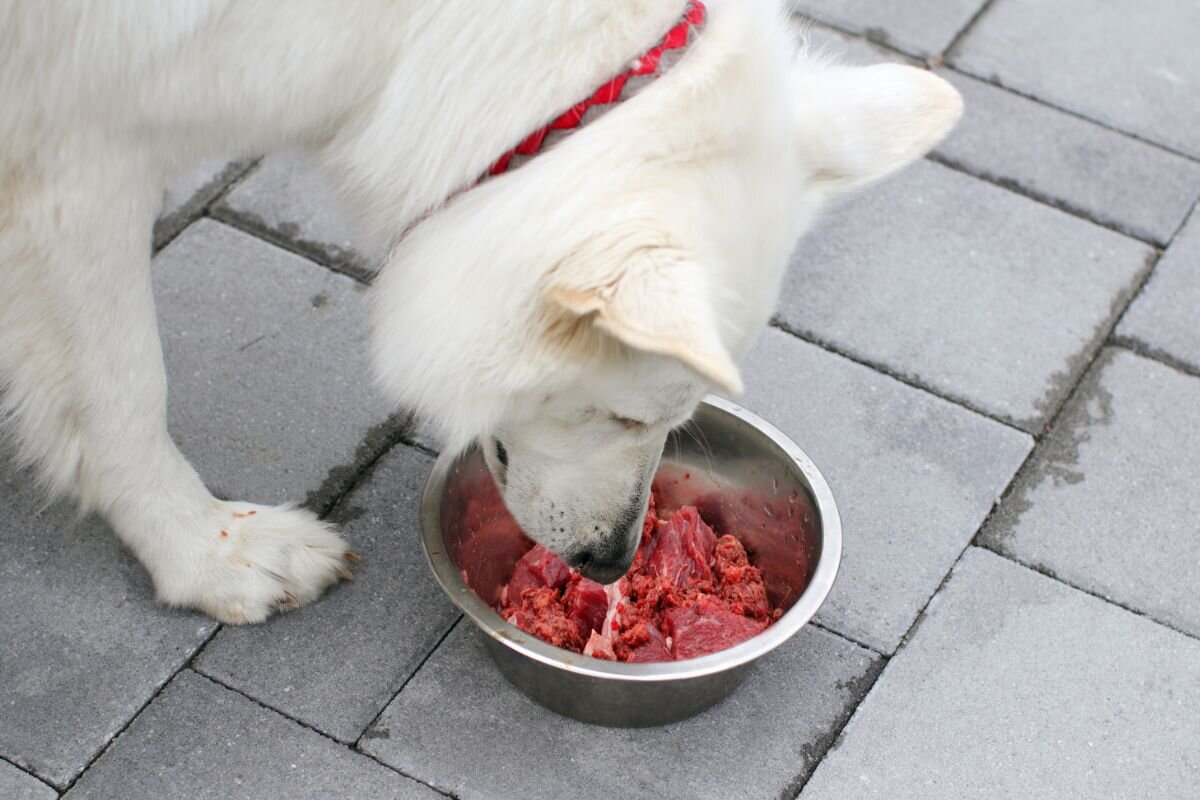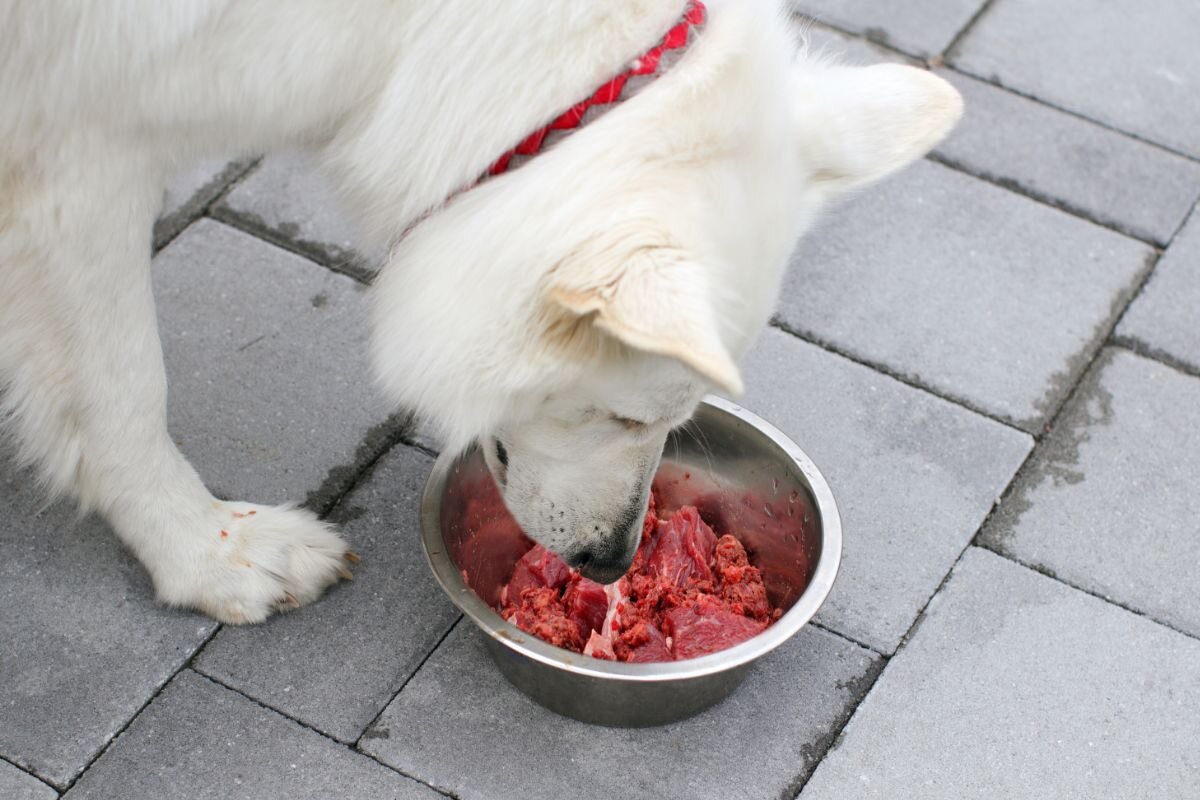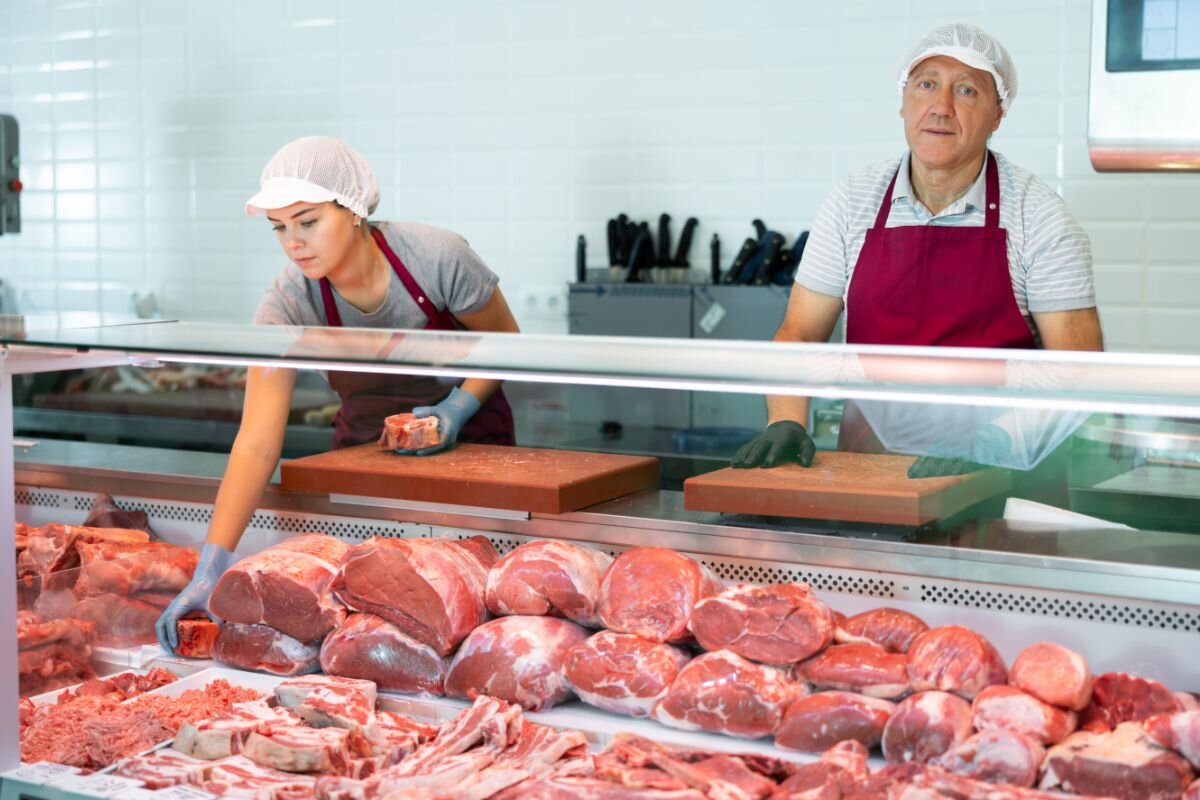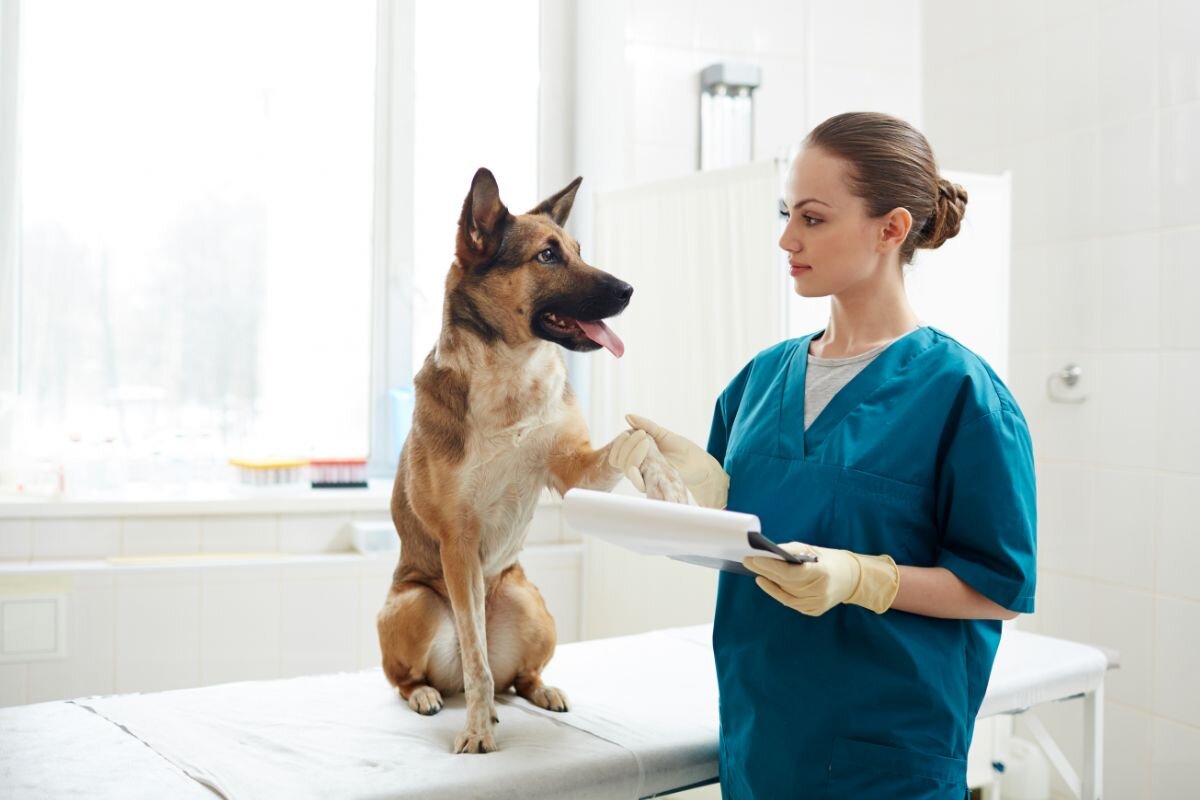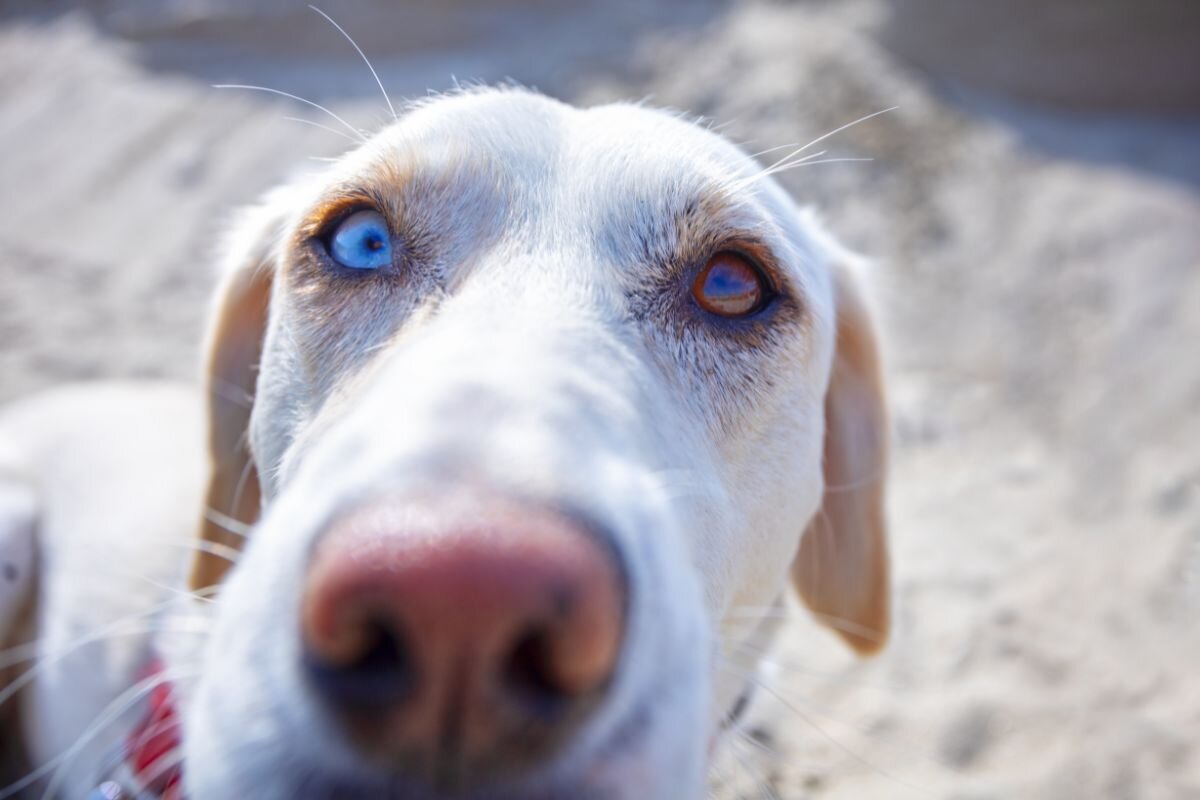The question of whether dogs can eat raw meat sparks heated debates among pet owners. Some claim that it is an ideal and natural food, while others warn of the dangers and risks to health. The truth, as often happens, lies somewhere in the middle.
Dogs are carnivorous animals, and their digestive system is adapted to digesting raw meat. In the wild, wolves and wild dogs hunt and eat prey in raw form. However, domestic pets have come a long way from their wild roots, and their bodies may react differently to raw food.
One dog may calmly eat a piece of raw beef and experience no negative consequences. Another, on the contrary, may become ill due to bacteria or parasites that may be present in raw meat. Each pet has its own unique body and digestive features.
This article will explore the pros and cons of feeding dogs raw meat. You will learn about the potential benefits of such a diet for your pet's health, as well as the serious risks that cannot be ignored. The goal of the article is to provide you with all the necessary information so you can make an informed decision about whether to include raw meat in your dog's diet.
Pros of Feeding Dogs Raw Meat
Raw meat enthusiasts believe that raw meat is the ideal food for dogs. Indeed, raw meat contains many nutrients in their pristine, unprocessed form.
Nutritional Value of Raw Meat
Raw meat contains a lot of easily digestible protein, essential amino acids, B vitamins, zinc, iron, and other minerals. Thanks to this, it strengthens the muscles, maintains the balance of hormones and metabolism in the dog. The fatty acids present in it contribute to the health of the pet's skin and coat.
Improvement of Digestion and Coat Shine
According to the American Veterinary Medical Association (AVMA), transitioning to a diet of raw meat improves digestion in dogs. Enzymes found in raw meat help with digestion, normalize stool, and reduce flatulence. Dogs on such a diet suffer less from bloating, heartburn, and other gastrointestinal problems. Their coat becomes shinier and silkier.
More Natural Diet
Raw meat is the basis of the diet of wild predators, so it is believed to be closest to the natural diet of dogs. Thermally processed food loses many vitamins and nutrients. Raw food advocates believe that a natural diet better suits the physiology of dogs as carnivores.
One of the most well-known and popular raw diets is BARF - Biologically Appropriate Raw Food or Bones and Raw Food diet. Developed in 1993 by Australian veterinarian Ian Billinghurst, this feeding system involves dogs consuming a combination of raw meat, offal, whole unprocessed vegetables, fruits, and eggs. BARF proponents claim that this diet is the closest to what wolves in the wild ate and is ideal for the health of domestic pets.
Risks of Feeding Dogs Raw Meat
As attractive as the benefits of a natural raw diet may be, the risks it poses cannot be ignored. Raw meat can be a carrier of dangerous bacteria, parasites, and even viruses that can cause serious illnesses in your pet.
Bacterial Infection
One of the main threats of raw meat is bacteria such as salmonella and campylobacter. Salmonellosis in dogs manifests as vomiting, diarrhea, fever, and loss of appetite. Campylobacteriosis causes severe abdominal pain, watery diarrhea that can last for weeks, general weakness, and lethargy. But these are just the tip of the iceberg of dangerous microorganisms.
Raw meat can also harbor Listeria, Clostridium, E. coli, and other pathogenic bacteria. They trigger severe digestive disorders up to bloody diarrhea, fever, seizures, paralysis. In case of weakened immunity, such infections pose a deadly threat.
Risk of Parasite Infection
Raw meat can be a source of infection with dangerous parasites such as tapeworms, toxoplasma, trichinella, and other helminths. Trichinellosis or "pork worm" causes severe muscle pain, nausea, fever. Toxoplasmosis can lead to neurological disorders, paralysis, and seizures.
Even quick boiling or freezing does not always kill parasites in meat. The only reliable method is thorough thermal processing at high temperatures.
Threat to Humans
It is worth mentioning the risk of transmitting zoonotic infections from dogs to humans. Bacteria and parasites living in raw meat can cause dangerous diseases in owners when they come into contact with infected food or pet feces. Children, the elderly, and those with weakened immune systems are especially vulnerable.
Therefore, if you feed your dog raw meat, adhere to strict hygiene rules when handling it and wash your hands thoroughly after contact. Raw meat requires special care in handling.
Safe Feeding of Raw Meat to Dogs
If you still decide to switch your pet to a raw diet, it is very important to follow certain rules to ensure their safety and health. Failure to take precautions can lead to severe consequences.
Choosing Quality Meat
First and foremost, give preference to meat from trusted sources. Buy it only from specialized stores or markets from reliable sellers. Make sure the meat is fresh and has been processed in accordance with all sanitary norms. Avoid buying "questionable" pieces at discounted prices.
Proper Storage
Raw meat is an ideal environment for bacteria to multiply. Therefore, it is important to ensure its proper storage at low temperatures. Do not reuse defrosted meat. Cut the carcass into portions and freeze them separately.
Hygiene During Feeding
Maintaining hygiene is extremely important when dealing with raw meat. Thoroughly wash your hands with soap before and after handling it. Keep all surfaces and utensils used for cutting clean. Never place raw meat on the same cutting boards as vegetables. Collect and dispose of all scraps and waste immediately.
Feeding Bones
Many breeders recommend giving dogs large whole bones, such as lamb or beef. However, never offer your pet boiled bones! They become brittle and can easily get stuck in the throat or damage the esophagus and intestines, which can be fatal. Raw bones are softer and easier to digest.
Be doubly cautious when feeding puppies or elderly dogs. Their digestive systems are more sensitive and less resistant to infections, so they require special precautions when transitioning to a raw diet. It's best to consult a veterinarian.
Types of Meat Suitable for Dogs
When transitioning to a raw diet, pet owners often wonder: what specific types of meat can be given to the pet? In fact, the choice is quite wide - dogs are omnivores and can digest a variety of raw meats.
Beef, Veal, Lamb
Classic types of meat are excellent choices for a dog's diet. Beef is rich in protein, zinc, iron, and vitamin B12. Veal is more tender and easier to digest, while lamb, in addition to protein, is a source of valuable fatty acids.
Chicken, Turkey, Lamb
Lean poultry meat is easily digestible and recommended for dogs of all ages. Lamb is enriched with vitamins B, zinc, and selenium. The main condition is to use only fresh high-quality meat.
Exotic Types: Horsemeat, Venison
For variety, you can also give your dog more exotic meats such as horsemeat and venison. They are high in protein with low fat and cholesterol levels. However, it is advisable to start with small portions, gradually accustoming the pet.
Offal: Liver, Beef Tripe, Chicken Gizzards
Include offal in your pet's diet - liver, beef tripe, chicken gizzards. They are rich in vitamins A, B group, iron, zinc, and amino acids. An ideal food supplement for maintaining health.
When introducing new types of meat into the diet, do so gradually. Start with small portions to avoid digestive upset. Make sure to alternate different varieties, offering the pet a varied and balanced diet. And, of course, complement the meat diet with vegetables, fruits, and dairy products.
Balanced Diet for Dogs
Transitioning to a raw diet may seem simple: give the dog raw meat, and that's it. However, ensuring a pet receives a complete diet is not that easy. Just giving meat is not enough to maintain your dog's health.
Importance of a Balanced Diet
Like humans, dogs need a balanced diet with various nutrients. In addition to protein from meat, they need fiber, vitamins, minerals, and other nutrients. That's why experienced breeders recommend supplementing a raw diet with special additives.
Role of Vegetables and Fruits
An integral part of a balanced canine diet should be vegetables and fruits. They provide the pet's body with fiber, antioxidants, vitamins, and minerals.
Other Diet Enhancers
Do not forget about chicken and quail eggs - they contain easily digestible protein and beneficial fats, as well as a rich set of vitamins and minerals. Various seeds, cereals, nuts will enrich the diet with valuable microelements.
Veterinarian Consultation
If you decide to switch your pet to a natural raw diet, be sure to consult with a specialist. An experienced veterinarian will create a balanced diet for your dog based on its age, size, activity level, and health status. They will also recommend the necessary vitamin and mineral complexes.
Transitioning to a new type of diet requires gradualness and careful monitoring of your pet's well-being. Monitor their behavior, appetite, skin, and coat condition. If any deviations occur, immediately consult a veterinarian.
Main Points
The question of whether to feed a dog raw meat does not have a clear answer. On the one hand, raw food is closest to the natural diet of wild carnivores and contains all nutrients in their native form. Many breeders note improvements in the well-being, digestion, and appearance of the coat of pets on a raw diet.
On the other hand, raw meat can be a carrier of dangerous bacteria, viruses, and parasites that can cause serious illnesses in dogs and even humans. Risks are particularly high for puppies, elderly dogs, and pets with weakened immune systems.
Therefore, the answer is this: yes, you can feed dogs raw meat, but only with strict adherence to all precautions. Use only fresh, quality meat from trusted sources. Ensure proper storage at low temperatures. Follow strict hygiene when cutting and feeding. Supplement the diet with nutritious vegetables, fruits, and additives.
The main thing - never experiment with your dog's diet alone. Be sure to consult a veterinarian who will create a balanced diet tailored to your pet's specific needs. Improper feeding can have dire consequences.
A responsible and attentive approach to the nutrition of your four-legged friend is the key to their health, vitality, and longevity. A properly composed diet of natural, high-quality products will help your dog maintain excellent shape for many years. Be sensible and take care of your pet, and they will respond with loyalty and love.

